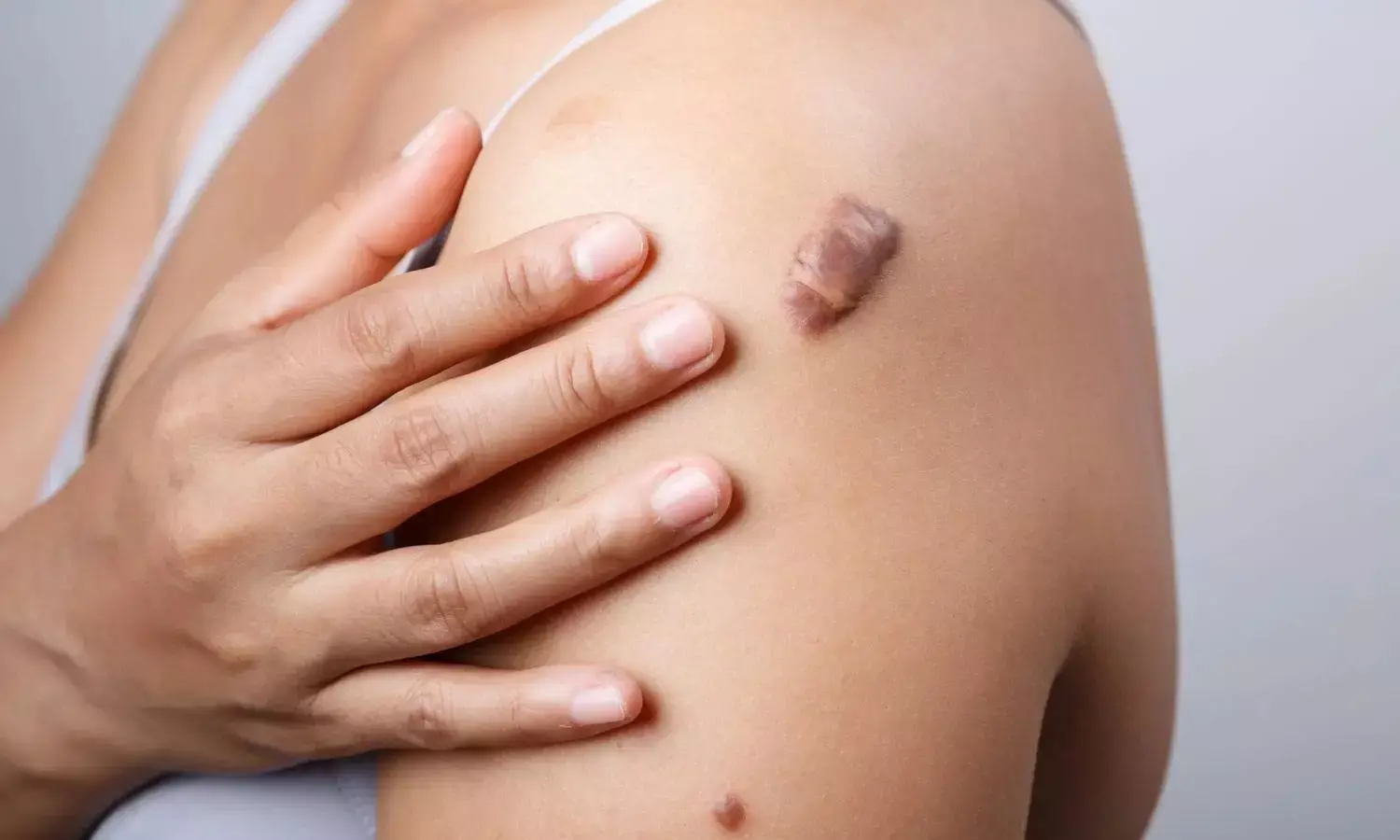- Home
- Medical news & Guidelines
- Anesthesiology
- Cardiology and CTVS
- Critical Care
- Dentistry
- Dermatology
- Diabetes and Endocrinology
- ENT
- Gastroenterology
- Medicine
- Nephrology
- Neurology
- Obstretics-Gynaecology
- Oncology
- Ophthalmology
- Orthopaedics
- Pediatrics-Neonatology
- Psychiatry
- Pulmonology
- Radiology
- Surgery
- Urology
- Laboratory Medicine
- Diet
- Nursing
- Paramedical
- Physiotherapy
- Health news
- Fact Check
- Bone Health Fact Check
- Brain Health Fact Check
- Cancer Related Fact Check
- Child Care Fact Check
- Dental and oral health fact check
- Diabetes and metabolic health fact check
- Diet and Nutrition Fact Check
- Eye and ENT Care Fact Check
- Fitness fact check
- Gut health fact check
- Heart health fact check
- Kidney health fact check
- Medical education fact check
- Men's health fact check
- Respiratory fact check
- Skin and hair care fact check
- Vaccine and Immunization fact check
- Women's health fact check
- AYUSH
- State News
- Andaman and Nicobar Islands
- Andhra Pradesh
- Arunachal Pradesh
- Assam
- Bihar
- Chandigarh
- Chattisgarh
- Dadra and Nagar Haveli
- Daman and Diu
- Delhi
- Goa
- Gujarat
- Haryana
- Himachal Pradesh
- Jammu & Kashmir
- Jharkhand
- Karnataka
- Kerala
- Ladakh
- Lakshadweep
- Madhya Pradesh
- Maharashtra
- Manipur
- Meghalaya
- Mizoram
- Nagaland
- Odisha
- Puducherry
- Punjab
- Rajasthan
- Sikkim
- Tamil Nadu
- Telangana
- Tripura
- Uttar Pradesh
- Uttrakhand
- West Bengal
- Medical Education
- Industry
New KECORT Study Offers Guidelines for Consistent Keloid Treatment Using Intralesional Corticosteroids

Netherlands: In a recent development in dermatology, the KECORT Study has produced essential guidelines on keloid treatment using intralesional corticosteroids. The international e-Delphi study brings together experts from various fields to address the complexities of keloid management, a condition known for its challenging nature and high recurrence rates.
This e-Delphi study offers significant clinical treatment recommendations regarding key aspects of intralesional corticosteroid administration (ICA) in keloids. The researchers note that implementing these guidelines is expected to enhance consistency in keloid treatment and improve overall outcomes. The findings were published online in the American Journal of Clinical Dermatology.
Keloids are raised scars that result from an overproduction of collagen during the healing process. They can cause discomfort and distress for patients, making effective treatment crucial. ICA is the primary treatment for keloids. However, there is considerable variability in its application across clinical and scientific practices, making it difficult to compare treatment outcomes effectively.
To address this issue, Qi Yin, Department of Dermatology, Amsterdam UMC location University of Amsterdam, Amsterdam, The Netherlands, and colleagues sought to reach a consensus on key aspects of intralesional corticosteroid administration using hypodermic needles for keloid treatment. They convened a global panel of dermatologists and plastic surgeons who specialize in this field, to develop consensus-based clinical recommendations for all physicians involved in managing keloids.
For this purpose, a panel of 12 dermatologists and 11 plastic surgeons specializing in keloids rated 30 statements over two online e-Delphi rounds, achieving a 100% response rate in both sessions. A total of 15 keloid experts took part in the final consensus meetings. Consensus was established when at least 75% of participants selected "agree" or "strongly agree" on a 7-point Likert scale.
The following were the key findings:
- Consensus was achieved on several key treatment aspects, including treatment goals, the indication for intralesional corticosteroid administration, and the preference for triamcinolone acetonide (TAC) at a concentration of 40 mg/mL, with a maximum dosage of 80 mg per month administered at 4-week intervals.
- Strategies to minimize pain during the procedure, the use of 1 mL syringes with 25 or 27-gauge needles, and blanching as an endpoint for successful infiltration were agreed upon. Participants also noted the importance of avoiding subcutaneous injections and the possibility of making multiple passes in very firm keloids before infiltration.
- Consensus was not reached on TAC dosing, methods of prior local anesthesia, or the specific location of injection.
To conclude, this e-Delphi consensus study offers evidence-based clinical treatment recommendations for intralesional corticosteroid administration in keloids, targeting all physicians involved in keloid management. Key aspects covered include treatment goals, indications for ICA, choice of corticosteroid, dosing guidelines, treatment intervals, syringe and needle specifications, local anesthesia use, and manual injection techniques.
"Implementing these recommendations is expected to enhance consistency in ICA practices for keloid treatment, making outcomes more comparable and potentially improving overall treatment results," the researchers concluded.
Reference:
Yin, Q., Wolkerstorfer, A., Lapid, O. et al. KECORT Study: An International e-Delphi Study on the Treatment of KEloids Using Intralesional CORTicosteroids in Clinical Practice. Am J Clin Dermatol (2024). https://doi.org/10.1007/s40257-024-00888-7
Dr Kamal Kant Kohli-MBBS, DTCD- a chest specialist with more than 30 years of practice and a flair for writing clinical articles, Dr Kamal Kant Kohli joined Medical Dialogues as a Chief Editor of Medical News. Besides writing articles, as an editor, he proofreads and verifies all the medical content published on Medical Dialogues including those coming from journals, studies,medical conferences,guidelines etc. Email: drkohli@medicaldialogues.in. Contact no. 011-43720751


